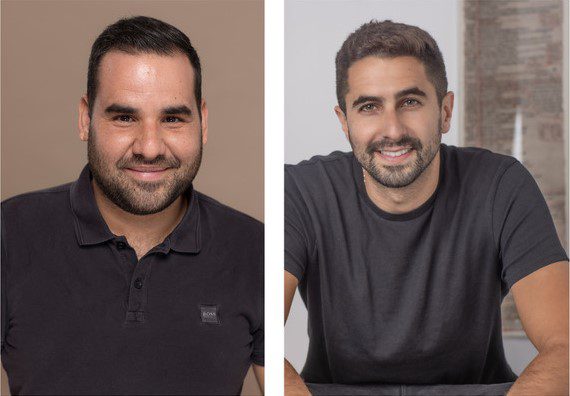We sat down with Sauce, Reeco and Tabit to hear about why they have chosen to double down on South Florida
By Riley Kaminer
Tel Aviv is the 7th most prominent startup ecosystem globally, with startups raising $30 billion in VC funds from 2017-2021. Now many of these high-growth startups – particularly in the hospitality sector – are deciding to tap into the US market by relocating to or expanding their presence in Miami.
Broadly speaking, the ties between South Florida and Israel are growing. This includes the NSU-based Levan Center’s partnership with the Florida-Israel Business Accelerator, a course at FIU that covers Israeli entrepreneurship and innovation, and the $290 million in annual trade between Florida and Israel. The Miami-Dade Beacon Council, the county’s economic development agency, has been working with Israel’s tech innovators in a number of our key industries.
“I’ve spent the past five years strengthening economic ties between Miami and Israel and have never seen the level of interest we’re seeing now,” said Greg Horowitz, Vice President of Economic Development for Miami-Dade Beacon Council and former Director of Economic Affairs for the Israeli Consulate in Miami. The Beacon Council joined Miami-Dade County Mayor Daniella Levine Cava and others on the Americas Linkage mission to Israel in March, which only confirmed the interest and growth the organization is seeing, he said. “This proves Miami’s welcoming tech community and business environment are what companies seek when expanding or relocating.”
Meanwhile, the tourism/hospitality space is Miami’s number one job creator, supporting 144,800 jobs annually. And of course, Miami is known globally for its wide-range of unique hospitality experiences. “We want to continue to attract companies that are not only innovative but support local businesses – especially in industries that are vital to Miami’s economy,” Horowitz added.
Refresh Miami spoke with three Israeli startups in the hospitality sector to learn about what factors motivated them to double down on the Miami tech scene.
In Miami, Sauce sees significant spending on food delivery as an opportunity
McKinsey values the global food delivery market at upwards of $150 billion: a figure doubled during the pandemic and has tripled since 2017.
Food delivery was a saving grace for restaurants during the pandemic. But it came at an enormous cost, with these apps’ commissions eating up 15% and 35% of each order’s total price tag.
Sauce offers an alternative that’s easier on a restaurant’s financial wasteline. They have developed a delivery platform that enables restaurants to sell and deliver food through their own website, circumventing third-party systems.
“We are leveling the playing field to give local restaurants a direct channel,” asserted Elliot Hool, Sauce’s VP of marketing. “Consumers enjoy the same experience: they can easily find the restaurant, easily pay, and conveniently track the delivery.” The main difference: Sauce cuts out the middleman.
In the year that Sauce has been active in Miami – their first US destination – they have reportedly captured around 10% of the food delivery market. The company leverages a national network of over 800 courier companies, including drivers for platforms like Uber.
There are a few reasons why Miami made sense for Sauce. First and foremost, the many restaurants and food businesses. “It’s a very strong culinary town – people love their food in Miami, and love to order delivery food,” noted Hool.
The easy flight to Miami from Israel was a major draw. Currently, five out of the company’s 60 employees are based in South Florida – a figure that Hool expects to continue to grow.
He also said that Florida in general was attractive: “It’s a very tech friendly state.”
“From day one, I felt that the business community has been really helpful. You get the feeling that people want more tech in Miami. They want people to build businesses here, and we felt that we felt very welcome.”
Equally, Sauce feels as though it is giving back to the economy. “We’ve kept $5 million in the Miami economy,” said Hool, because local restaurants and consumers retain the commission that would have been given to an out-of-state delivery company.

Reeco reaps the benefits of South Florida’s strong hotel market
Israeli-turned-Miami startup Reeco lends a hand to hotels, but one step back the value chain from Sauce. They have developed an online marketplace that connects both buyers and suppliers from the hospitality industry to purchase their goods online.
Co-founder Omri Shalev told Refresh Miami that – believe it or not – the industry standard in the hospitality industry is to make potentially hundreds of thousands of dollars worth of purchases each month through a flurry of phone calls, WhatsApp messages, and emails. Shalev’s co-founder and CEO, Henrik Shimony, knew this struggle first-hand, having managed a string of hotels his family owns in Israel.
Two years ago, the duo teamed up to build their digital solution. “Through our marketplace, you can easily pick your products, select the suppliers you want to order from and receive it digitally once the driver arrives with our tablet,” noted Shalev, Reeco’s CTO. This creates efficiencies and reduces costly human errors.
Reeco was keen to move to the US to take advantage of our major market of 55,000 hotels, which dwarfs Israel’s 431.
Shalev said that Miami made sense as a soft landing location thanks to our many food and beverage options, as well as our hotels with very high occupancy rates.
Our rapidly-growing tech scene was also a draw. “Miami has become very techy,” said Shalev. “This is super important because as a startup company, at the end of the day, you can’t do it by yourself and you need to hire more people.”
Reeco expects to have 15 to 20 employees in South Florida by the end of next year.
So far, Reeco has deployed its platform to major South Florida management companies with more than 250 hotels in their portfolio, from Key Largo to Fort Lauderdale. The immediate goal is to start scaling to all of Florida – with Naples and Orlando top of the list.
While the company is starting with hotels, they plan to offer their platform to a wide range of other relevant organizations, such as nursing homes, event venues, and golf clubs.

Tabit tackles Miami market for digital payment platform
In 2020, Israeli startup Tabit landed in South Florida, establishing its US headquarters in Aventura. The company’s mobile-first platform helps restaurants and hotels leverage digital tools to analyze and improve their business.
Tabit is now active in a diverse set of restaurants in South Florida, including high profile clients such as Novikov, Serafina, The Setai, KYU, and Rosa Sky – just to name a few. The startup has also partnered with FIU on initiatives such as teaching students how to use their mobile point of sale technology and helping modernize the school’s tech stack.
Nadav Solomon, Tabit’s president, told Refresh Miami that the company currently has 50 employees here – up from 15 when we caught up with him last year. And that’s still just the start, according to Solomon: “We are hiring lots of talented people for sales, marketing and operations roles.” The company also recently closed a $40 million funding round, bringing their total amount of external capital raised to $105 million.
The startup is also sponsoring the SoBe Wine & Food Festival, as well as the HT-NEXT hospitality conference in Miami Beach.
Tabit’s all-in-one platform helps restaurants digitize their operations such as reservations and payments, without the major costs that other providers charge. “Reservations can cost $1 per head, delivery companies charge 30 to 40 percent, and payment companies often take 3 to 5 percent of sales,” Solomon explained.
Solomon noted that the company’s mobile devices can increase sales while also ensuring quicker table turns – all while improving the accuracy of orders. More customers served and a higher, more accurate check size per table is a recipe for success.

STAY TUNED FOR MORE HOSPITALITY TECH STORIES ON REFRESH MIAMI:
- On heels of explosive growth, top Israeli hospitality tech startup Tabit plans expansion in Miami
- With its tech, Nuvola helps the world’s hotels run smoothly
- Sebiya aims to lead way in digitizing travel experiences and launches ‘Less is More’ initiative for Miami Beach hotels
- Catching up with Daycation, the app that helps you spend the day at your favorite hotel pool
- Healthy food manufacturer DeliverLean to be acquired by NationsBenefits
- YUPIX partners with E11EVEN to give meta-reality tours of luxury residences
- AI, climatetech and healthtech reign supreme on Day 1 of eMerge Americas’ 10th anniversary - April 18, 2024
- Brought together by tech, kept together by culture: Miami’s protagonistic role in LatAm’s startup story - April 15, 2024
- New World Angels launches Innovation Fund to write pre-seed checks - April 12, 2024





